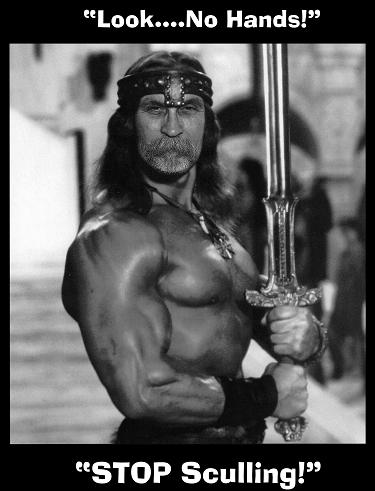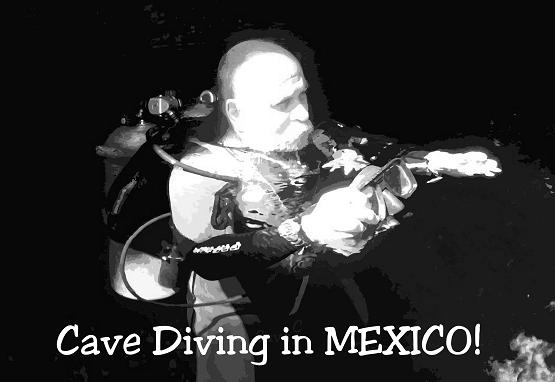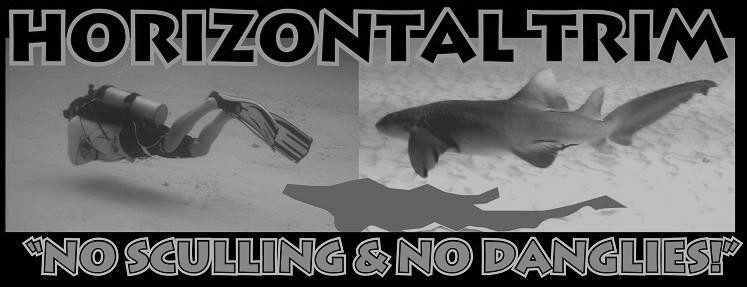
|
SCUBA Diving Buoyancy Control
Buoyancy
Control Skills
The Importance of Buoyancy Control!
|
 |
| "No Performance Requirement in SCUBA Diving is more poorly defined or less often achieved than__Buoyancy Control." |
| Good Buoyancy Control begins with: A Symbolic
Amputation of HANDS!
 |
 make that; "THE TOUGHEST TALK!" We
don't just mention that hands are not useful in SCUBA Diving. We get
right in your face about it. We believe that subtracting hands is the
single most important key that unlocks the mystery of Buoyancy
Control. We know or have seen
that there are others who mention
"NO HANDS" or even "Look MA....no hands" a very similar phrase to
the one we have used for years. NO....we didn't invent not using the hands. In fact we have even seen it in
an open water student
text book. We
bet your instructor never mentioned it
though....do you know why? We
think it might be because your instructor, like so many others,
couldn't afford to get caught sculling during confined water training
right after pointing out, in class, that it is TABOO.
|
|
EXCEPTIONAL
BUOYANCY CONTROL: is not "just" for and about TECHNICAL DIVERS!
|
|
BE
MORE THAN A JUST CASH COW!
BE MORE THAN A SCUBA CUSTOMER! WHY NOT LEARN BETTER BUOYANCY DURING A DIVE
VACATION?
|
  MEET US
THERE!
|
CAVE DIVERS: should
have good buoyancy control skills. Many do not! A great many of the divers who elect to
advance to cave diving and other types of "TECHNICAL DIVING" are, already,
Leadership Level Divers [ aka. instructors, instructor trainers and
divemasters ]. It might be reasonable to expect that they
would arrive at the first day of their cave course with their FUNDAMENTAL DIVE SKILLS already in place. More often
than not, this is not the case.
This author actually saw and established a value to buoyancy control, early on, by observing how two Cozumel Dive Guides looked when compared to the professionals who had conducted his initial dive training in the United States. After, much work, he achieved talent that was on a par with that of these two Mexicans. This author, your author [YA] continued on to instructor training, followed a year later by a...."full cave diver course". One of the first things to be learned about cave diving is how to do a bubble check and an "S"- drill. Thirteen minutes is how long it took to complete YA's first "S"- drill ! BECAUSE: the two other students in YA's cave class [both **** professionals] were in doubles for the first time and did not have buoyancy skills that were remarkable in a single tank. Unfortunatly, this "IS NOT" the exception that proves the rule. It is a scene that is repeated far too often. YA has seen it repeated in classes that were attended by colleagues and friends. MONEY$$$$ really does the talking and many cave instructors can't afford to turn that kind of money away so they hold their noses and certify too many cave students, many of whom are leadership level divers who are without credible fundamental skills. AND chances are good that you learned about diving from one or more of them. YA
is: john noftall
|
|
TRY TO IMAGINE
A world in which 199
out of every 200 persons stumbled around like toddlers or drunks.
NOW YOU
KNOW....
...how
the aquatic world looks to the less than one half of one percent of
divers who have excellent Buoyancy Control Skills.SCUBA....NO
OTHER ACTIVITY HAS MORE CELEBRITIES AND
EXPERTS WHO EXHIBIT SUBSTANDARD FUNDAMENTAL SKILLS!
|
|
SCUBA Diving FUNDAMENTALS: are
the basic skills that are needed in order to operate in an alien
world. They are the foundation that supports everything else that a
diver will ever pursue or accomplish. Buoyancy Control,
underwater propulsion skills ( fin kicks ) and a horizontal profile
with
streamlining are as basic to
underwater pursuits as walking and running are to terrestrial
activities.
Underwater skills do not equal surface swimming skills. This author has seen magnificent surface swimmers who were hopeless divers and has know some truly spectacular divers who had surface swimming skills that were barely sufficient to keep them alive in an emergency. Equating good swimmers with GOOD SCUBA Divers is a profound mistake that has been perpetuated by the "Status Quo" because they are unable to agree upon or recognize a standard for truly exceptional foundation skills. These same people, many of whom never bothered to perfect their own fundamental dive skills, share their less than remarkable buoyancy control talent, with their students, and promote and advance the culture, of substandard SCUBA Skills, that continue to prevail and dominate the sport. EVEN WITH THE BEST INTENTIONS: ability that has not been mastered, cannot be shared with someone else. This is true regardless of the credentials that are held or the reputation that has been established. A reputation that may exist mostly on paper or plastic and that may or may not be deserved. john noftall
|
|
ABOUT SWIMMING
We
agree that swimming is a good thing to know....and not just for divers.
This author conducted beginner classes through a local dive shop for
nine years and certified almost 600 divers of different levels up to
divemasters. The training agency required a "swim test before
certification" but, because they did not want the test to appear to be
a condition for taking the course, they suggested waiting until the end
of the confined water (the pool) sessions to apply the swim test. IF
the reader has not already guessed, there were no less than five
students during that time that failed the swim test on the 5th night of
confined water training AFTER performing well on SCUBA in both the
shallow and deep ends of the pool. The first thing that this brings to
mind is the comfort level that must be required to pull that off. This
defies imagination if you are a swimmer. This is followed by the
realization that , if a non swimmer could out perform a swimmer on
SCUBA, and in some cases this was true, then surface swimming
becomes "only" a test of surface skills, without equipment. We
agree that there should be a test for minimal surface survival. What we
object to is the use of superb swimming skills being substituted for a
"real standard" for Buoyancy Control Skills. Or better still.....an encouragement to
exceed any and all standards for FUNDAMENTAL DIVE SKILLS.
john
noftall
|
| PERHAPS
IT'S TIME TO STOP MEASURING SCUBA DIVERS BY THEIR CRAWL STROKE? |
|
MY
FIRST DIVE MASK
My
first dive mask was an "Adolph Kiefer" signature model from Sears
Roebuck. It was triangular in shape, blue in color and included no
option for pinching the nose to aid with equalization of the ears.
Adolph was a
champion swimmer from the 1930s & early 1940s. Nobody in the United
States had ever heard of Jacques Cousteau or Mike Nelson [ both
were still years* away from their TV impact ] so "a
swimmer" was chosen to endorse a dive mask. I'm not suggesting
that this was the beginning of substituting swimming skills for dive
skills but I think comparisons can be drawn as to why so
many current "elite divers" are forgiven their less
than spectacular fundamental dive skills "IF" they are good
swimmers!
john noftall
*not that many years....it was 1953.
|
 AS MOST
BUOYANCY CONTROL SKILLS CLINICS
|
| BE MORE: than just a tourist with a C-CARD in your pocket! PERFECT YOUR FUNDAMENTAL
DIVE SKILLS...."FIRST"!
BECAUSE: there's no such thing as buoyancy
control skills that are "GOOD ENOUGH"
|
| FYI: | beware
of people who say your buoyancy control will improve [ like magic ] if you
just dive more. ask them if that's how they did it....BUT watch their hands the next time that you see them "UNDERWATER" |
 |
|
DANGLIES;
are a regular feature of dive magazine photos!
"DON'T
LOOK LIKE A DIVE MAGAZINE DIVER!" |
|
copyright: BuoyancyQuest,LLC
2015....all rights reserved |